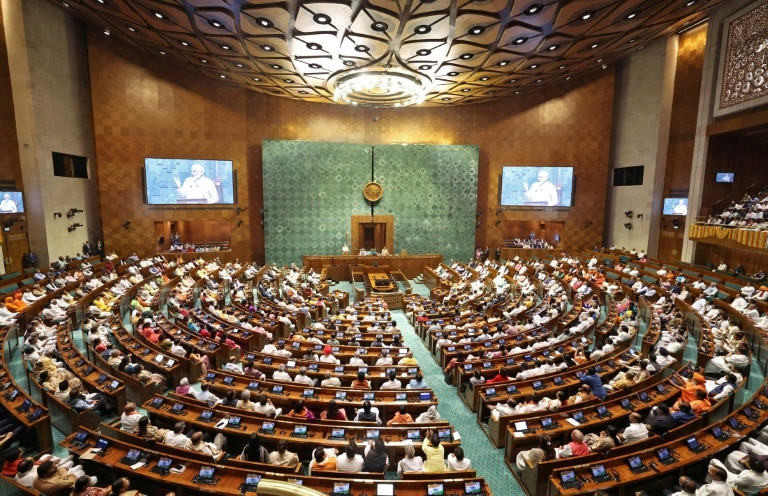About Ethics Committee in Parliament:
- The genesis of formation of the Ethics Committee in Parliament can be traced to a resolution adopted at the Presiding Officers Conference held in New Delhi in October, 1996.
- Each house of the parliament has its own ethics committee.
- Ethics committee in Lok Sabha
- It was first constituted in 2000.
- Composition: It consists of not more than fifteen members and nominated by the Speaker.
- Term: They shall hold office for a term not exceeding one year.
- Ethics committee in Rajya Sabha
- It was constituted in 1997.
- Composition: It consists of 10 members nominated by the Chairman of Rajya Sabha.
- Term: They shall hold office for a term not exceeding one year.
- Functions
- To oversee the moral and ethical conduct of the Members;
- To examine the cases referred to it with reference to ethical and other misconduct of the Members.
- Any person or member may make a complaint relating to unethical conduct of a member to the committee.
- In the case of the Ethics Committee only an MP can be examined for misconduct.
Q1) What is Lok Sabha?
It is often referred to as the “House of the People,” is the lower house of the Parliament of India. It is one of the two houses of India’s bicameral legislature, with the other being the Rajya Sabha, which is the upper house. The Lok Sabha is the primary legislative body in India and plays a crucial role in the country’s democratic system.
Source: Mahua Moitra matter goes to LS Ethics Committee: What it does and who all are in it
Last updated on June, 2025
→ UPSC Notification 2025 was released on 22nd January 2025.
→ UPSC Prelims Result 2025 is out now for the CSE held on 25 May 2025.
→ UPSC Prelims Question Paper 2025 and Unofficial Prelims Answer Key 2025 are available now.
→ UPSC Calendar 2026 is released on 15th May, 2025.
→ The UPSC Vacancy 2025 were released 1129, out of which 979 were for UPSC CSE and remaining 150 are for UPSC IFoS.
→ UPSC Mains 2025 will be conducted on 22nd August 2025.
→ UPSC Prelims 2026 will be conducted on 24th May, 2026 & UPSC Mains 2026 will be conducted on 21st August 2026.
→ The UPSC Selection Process is of 3 stages-Prelims, Mains and Interview.
→ UPSC Result 2024 is released with latest UPSC Marksheet 2024. Check Now!
→ UPSC Toppers List 2024 is released now. Shakti Dubey is UPSC AIR 1 2024 Topper.
→ Also check Best IAS Coaching in Delhi
























